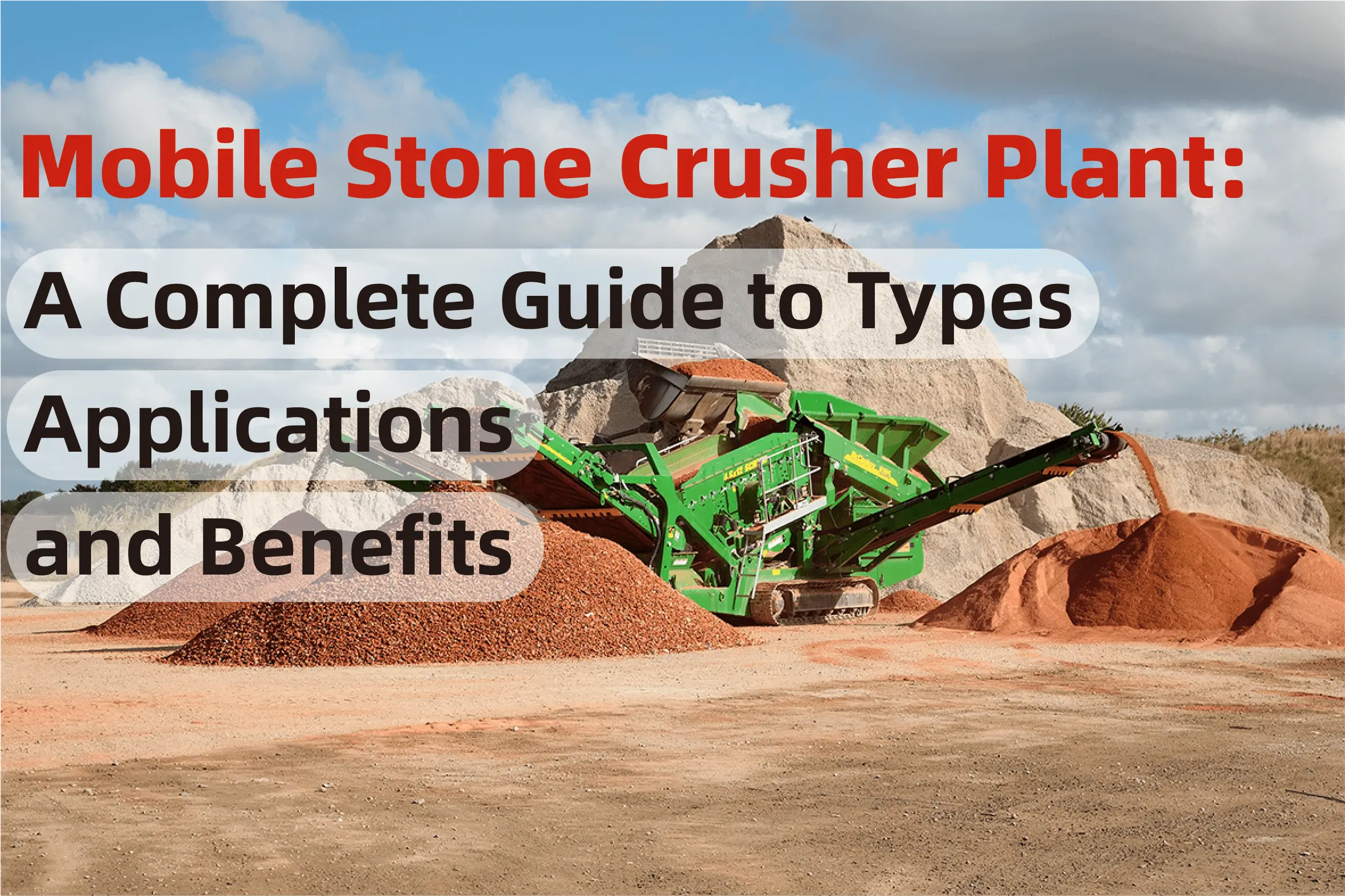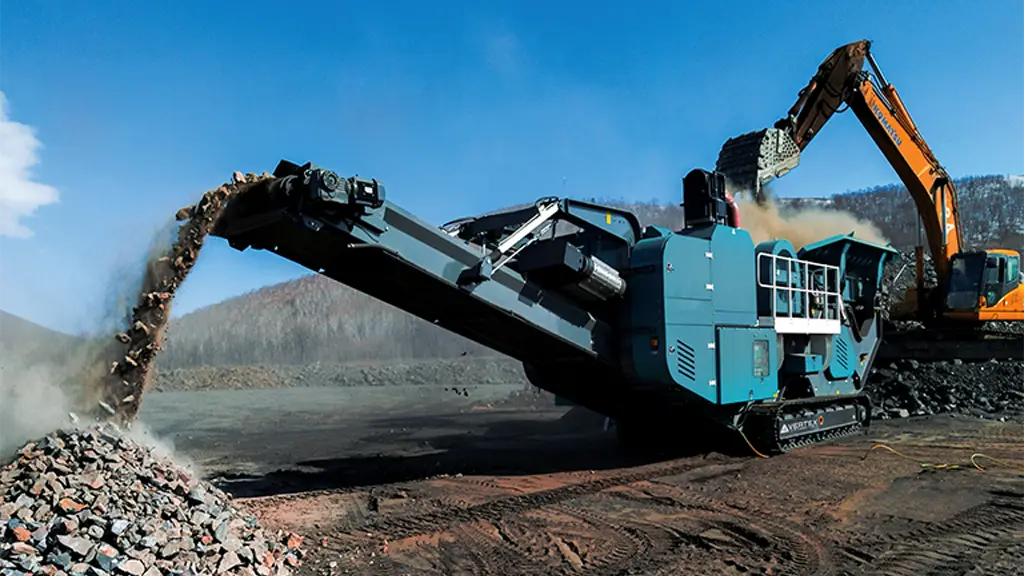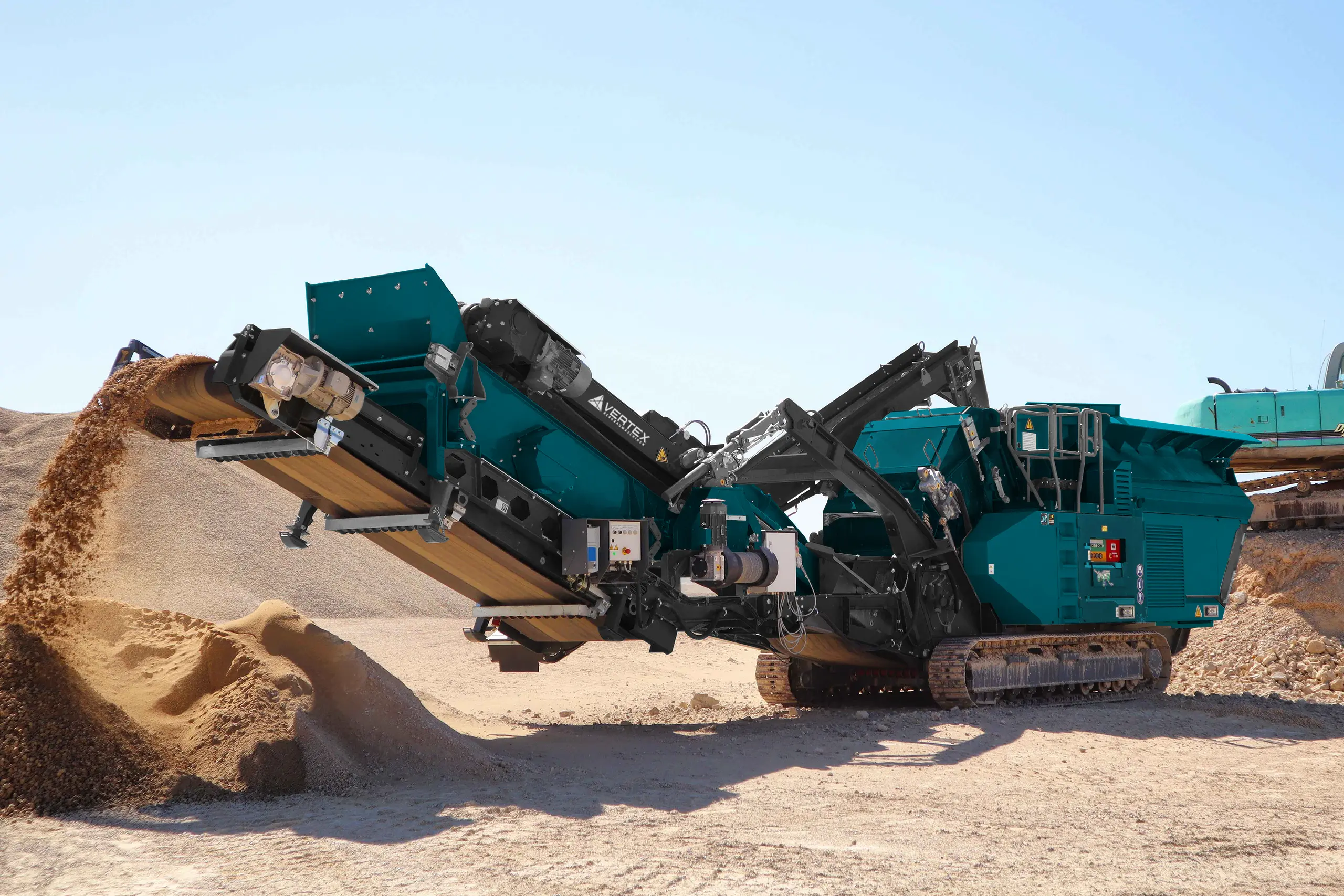
In the construction, mining, and recycling industries, the mobile stone crusher plant has become a game-changer. By offering mobility, flexibility, and efficiency, these plants are ideal for on-site processing of materials. Whether you're working on a remote mining site, a demolition project, or a road construction task, a mobile stone crusher plant can provide a solution for crushing hard materials into manageable sizes. In this article, we will explore the seven types of mobile stone crushers, their applications, technical features, maintenance tips, and more, helping you make an informed choice for your business or project.
Mobile stone crusher plants come in various configurations and types. Here’s an overview of the seven most common types:
A mobile jaw crusher is the most basic type, widely used for primary crushing tasks. It typically consists of a fixed jaw and a moving jaw that compresses the material. This type is especially effective for hard, large rocks.
Applications: Ideal for mining, quarrying, and recycling.
Advantages: High capacity, easy to maintain, and suitable for various feed sizes.
Best for: Primary crushing in large-scale operations.
The mobile cone crusher uses a rotating mantle to crush the material between a stationary bowl and a moving cone. It is often used for secondary or tertiary crushing.
Applications: Efficient in producing finely crushed aggregates for high-quality road base materials.
Advantages: High precision, consistent output, and capable of handling abrasive materials.
Best for: Secondary and tertiary crushing in high-volume production.
The mobile impact crusher uses high-speed impact to break down materials. Its crushing mechanism involves striking materials with a high-velocity rotor.
Applications: Best for recycling materials, such as concrete and asphalt, or soft to medium-hard rocks.
Advantages: Excellent for producing cubical aggregates, making it ideal for road construction.
Best for: Secondary crushing and recycling.
A mobile VSI crusher uses vertical shaft impact technology to crush materials with high velocity, turning them into sand-like products.
Applications: Perfect for producing sand and fine aggregates, especially in construction and mining.
Advantages: High flexibility, can produce a variety of material types from hard and abrasive rocks.
Best for: Fine material production, such as sand for concrete production.

A mobile hammer crusher is a high-efficiency machine that breaks down hard rocks by using a series of hammers that are mounted on a rotating shaft.
Applications: Suitable for both primary and secondary crushing of soft to medium-hard materials.
Advantages: Simple design, less energy consumption, and versatile use.
Best for: Crushing of softer materials and recycling applications.
The mobile screen crusher plant incorporates a screening system along with the crushing unit. This integrated system helps in the production of graded aggregates.
Applications: Suitable for operations where both screening and crushing are needed in a single, efficient setup.
Advantages: Eliminates the need for separate screening equipment, saving time and cost.
Best for: Projects that require both crushing and screening, like aggregate production.
A mobile hybrid crusher uses a combination of diesel and electric power, providing flexibility in terms of fuel use.
Applications: Used in areas with limited access to power sources or where fuel savings are necessary.
Advantages: Increased fuel efficiency and reduced emissions.
Best for: Operations in remote areas or where power supply is inconsistent.
Applications of Mobile Stone Crusher Plants
In mining and quarrying operations, mobile stone crushers are used to break down hard rock into smaller, manageable sizes. This is essential for transporting the material or further processing.
Example: A mobile jaw crusher could be used in granite quarries, while a mobile cone crusher is ideal for crushing secondary materials like ores and other hard materials.
Mobile stone crushers are highly effective in demolition projects where recycled materials are needed for new construction. They help reduce the environmental impact by recycling concrete, asphalt, and other materials into reusable aggregates.
Example: Mobile impact crushers are particularly efficient in breaking down construction waste such as concrete and bricks.
In road construction, mobile stone crushers provide a cost-effective solution for producing high-quality aggregates that can be used as road base materials. These crushers are particularly useful in remote or challenging areas where traditional crushers would be too expensive or impractical.
Mobile crushers are widely used for recycling demolition debris, asphalt, and concrete. By turning waste into reusable aggregates, these crushers reduce the need for raw materials and save on landfill space.
Example: A mobile VSI crusher is perfect for turning concrete rubble into high-quality sand for construction purposes.

One of the primary advantages of mobile stone crusher plants is their ability to be moved easily from one job site to another. This allows companies to reduce transportation costs and downtime between jobs.
By reducing the need for transporting raw materials to stationary crushers, mobile stone crushers help save on fuel and reduce transportation costs. This increases the overall cost-efficiency of a project.
Mobile crushers reduce the carbon footprint by cutting down the need for trucking materials to a central processing plant. Some newer models, such as mobile hybrid crushers, also offer better fuel efficiency, contributing to a greener operation.
With minimal setup requirements, mobile stone crusher plants can start processing materials right away. This reduces the time needed to move equipment and start operations, leading to faster project completion.
Mobile stone crushers come equipped with either diesel or electric power sources, with some hybrid models combining both. Hybrid systems reduce fuel consumption and improve overall energy efficiency, making them an ideal choice for eco-conscious operations.
Many mobile stone crushers are equipped with automation systems that allow operators to remotely monitor performance, adjust settings, and track wear levels. This minimizes downtime and maximizes efficiency.
Example: Advanced models come with predictive maintenance features, sending alerts about equipment performance and potential issues before they cause a breakdown.
The robust construction of mobile stone crushers ensures long-lasting durability, even in harsh conditions. Additionally, modern machines come with built-in safety features such as dust suppression systems and emergency stop functions to protect both operators and equipment.
Regularly inspecting the crusher for wear and tear is crucial for maximizing its lifespan. Keep an eye on key components like jaw plates, impact hammers, and concave liners. Early identification of wear helps prevent unplanned downtime.
Proper lubrication of moving parts such as bearings and the eccentric shaft ensures smooth operation. Regular lubrication helps reduce friction and extend the life of these components.
With smart monitoring features, operators can track the condition of the machine remotely, enabling predictive maintenance. This allows for adjustments before problems arise, preventing major failures and reducing repair costs.
When considering the purchase of a mobile stone crusher plant, it’s essential to evaluate the total cost of ownership (TCO). TCO includes:
In the long term, mobile crushers help reduce transportation costs and downtime, offering better ROI compared to stationary machines.
Mobile stone crusher plants offer unparalleled flexibility, efficiency, and cost savings for projects in mining, construction, and recycling. By understanding the different types of crushers, their applications, and how to maintain them properly, you can optimize your operations and maximize profits. Whether you need a mobile stone crusher plant for large-scale mining or a mobile stone crusher for recycling, there’s a solution tailored to your needs. By choosing the right model and maintaining it efficiently, you ensure high performance and long-term success.